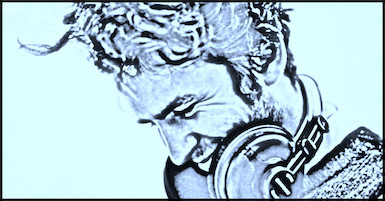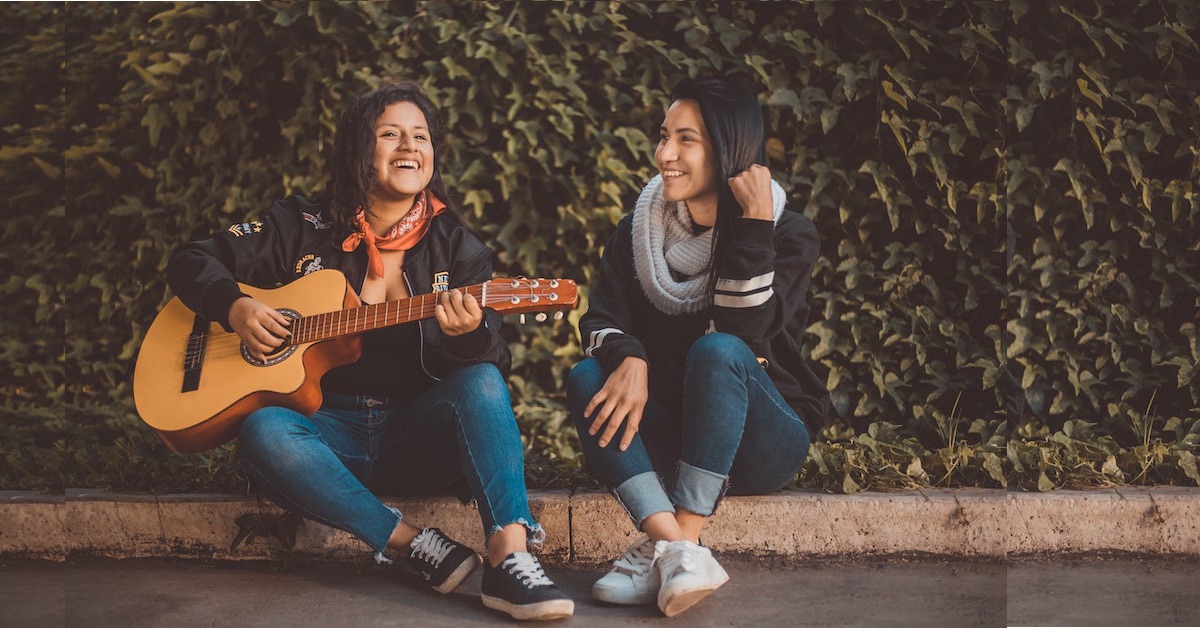I regularly check through the top songs in the Rock, Country, AC, and Urban genres and, guess what… in all four genres a majority of the hits are collaborations. In the Country genre, in fact, ALL of the top songs are frequently collaborations!
Collaborating (co-writing a song with one or more other songwriters) has so many benefits that it’s worth putting some real effort into learning how to do it and finding compatible songwriting partners to work with. It may take some time, maybe a few false starts, but it can more than repay you in the long run.
REASONS TO COLLABORATE
- A collaborator can offer new ideas and nudge you out of old habits.
- If you fall in love with a line that isn’t working, a collaborator can point that out and keep the song moving forward.
- Working with a collaborator gives you added motivation, energy, and goals to meet.
- The cost of demoing your song can be half what it would be if you wrote it alone.
- Chances are you’re stronger in one area (lyrics or music) than another; a collaborator can add strength where you’re weak.
So, why not collaborate? Do you resist collaborating because you’re afraid that you’re not good enough, or afraid you’ll come up with dumb ideas… or no ideas? I totally understand. We all share those fears. Here are a few tips that will help you get you going.
=> Give yourselves a chance to warm up. Play a few of your favorite songs for each other. Discuss what you like about them. Is there a style or a sound you think the two of you could aim for? Sharing songs is the fastest way to get to know each other. You might also pick up some ideas that will get a song of your own started.
=> Yes, you might say something that sounds stupid. You and your co-writer are going to be creative together. That means taking a chance on something you just thought of, a melody idea or lyric phrase that might not even be fully worked out. You can’t hold things back when co-writing because you never know what will spark an idea for your writing partner. So, go ahead and blurt it out. A good co-writer will respect the risk you’re taking and try to build on the idea.
Go ahead and loosen up before you start writing. Take turns coming up with lines that rhyme, any rhyme. Write a few parody lines to a hit song. Make yourselves laugh. Acknowledge your scared side and move on.
=> Bring plenty of ideas with you. You’ll feel a lot less anxious about collaborating if you come prepared with the raw material to get your songs started. Spend at least an hour preparing for a co-writing session. If you keep a notebook of lyric ideas, this is a good time to go through it. If you record unfinished melodies, get a few of those recordings ready to play. You don’t need much, just a place to start from, something you’re excited about. It will help to get the ball rolling. You’re welcome to use any of the ideas on my Song Starter pages.
=> Working long distance. You don’t have to be in the same room to co-write. Plenty of collaborations take place on the Internet. Use Zoom for video chats. Share the lyrics on screen as you make changes. Or use Google docs for lyrics and write the melody together on Zoom. There are sites like Dropbox that make it easy to share music and lyric files.
=> Swap songs. You don’t have to co-write at the same time. You can share a lyric or music file and then work on it at your convenience. When you have something you want to share, then get together to go over it. If you have a couple of songs going at a time, both of you will have something to work on. Trade songs every few days.
If you get busy and can’t work on a song for awhile, be courteous and let your writing partner know. It happens to everyone, of course, but if you find that you or your partner are regularly holding things up, you might want to discuss your options.
If you find that you’re stuck, whether writing together or separately, try these ten steps to get you going again.
WHERE TO FIND COLLABORATORS
Local: Clubs and music venues: You can find potential collaborators at clubs in your area. Try an open mic night. You’ll find singer-songwriters in a variety of styles. If you can, play a few songs of your own so people get a chance to hear what you can do.
Schools: The music department at a local college is a great place to hunt for co-writers. Talk to a teacher, post a notice on a bulletin board, or take a class yourself to meet other people interested in songwriting. It there’s a campus music club, join it.
Music stores: Music stores often have teachers who give lessons. Find out if they have a student who would be interested in writing with you, or maybe they’d like to write a song with you themselves. If you don’t play an instrument yourself, this is a great way to find someone who does. Maybe you’ll want to take a few lessons while you’re at it.
Online: The Internet makes long distance collaboration easy. Do your research. Look for established web sites with forums where songwriters meet to share songs, get feedback, and find collaborators. TAXI has an excellent forum with a Collaboration Corner where you can meet good songwriters. (You don’t have to be a TAXI member to use the forum.)
Now, go find somebody to play with!
by Robin Frederick


